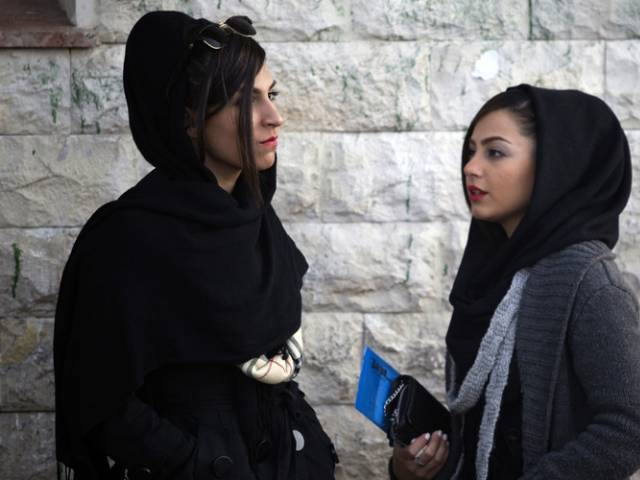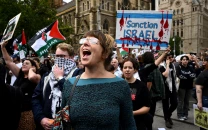Hijabs held aloft as Iranian women protest compulsory cover-up
Under Iran's law, women are obliged to cover their hair with a scarf, known as a Hijab, and wear loose-fitting...

Under Iran's law, women are obliged to cover their hair with a scarf, known as a Hijab, and wear loose-fitting clothes. PHOTO: REUTERS
"We are fighting against the most visible symbol of oppression," said Masih Alinejad, who hosts the website My Stealthy Freedom where women in Iran post photos of themselves without Hijabs.
Under Iran's Islamic law, imposed after the 1979 revolution, women are obliged to cover their hair with a scarf, known as a hijab, and wear long, loose-fitting clothes. Violators are publicly admonished, fined or arrested.
"These women are saying, 'It is enough - it is the 21st century and we want to be our true selves,'" the Iranian activist told the Thomson Reuters Foundation.
The trend picked up momentum after video and images were posted online of one woman waving a white scarf on a stick in December - a day before demonstrations erupted against economic conditions in eastern Iran, said Alinejad.
Unrest quickly spread across the country and the focus broadened as protesters began calling for Iran's supreme leader, Ayatollah Ali Khamenei, to step down.
The video went viral as police cracked down, and Alinejad said the woman was arrested. She has since been released, according to a Facebook post by Iranian human rights lawyer Nasrin Sotoudeh.
Women worldwide unite for Hijab Day
Although the wider anti-government demonstrations have ended, women across Iran are "fed up" and continue to protest against "the interference of religion in our personal lives", said the activist.
Alinejad said she is now flooded with videos and photos of women imitating the viral video and she shares them on the My Stealthy Freedom Twitter account and Facebook page.
"These people are not fighting against a piece of cloth, they are fighting against the ideology behind compulsory Hijab," said Alinejad, who called the movement the "true face of feminism."
To campaign against the obligatory wearing of headscarves, Alinejad last year encouraged women to take videos or photos of themselves wearing white and upload them on social media with the hashtag #whitewednesdays.
The #whitewednesdays campaign is part of a larger online movement started three years ago by Alinejad, a journalist who has lived in self-imposed exile since 2009. She has received death threats since her campaigning started.
"I wake up everyday with the voices of these women in my inbox," said Alinejad from New York where she now lives.
"I am full of hope. Civil disobedience is the first step to gain our victory."


















COMMENTS
Comments are moderated and generally will be posted if they are on-topic and not abusive.
For more information, please see our Comments FAQ